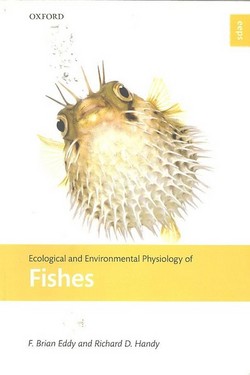
By
F. Brian Eddy & Richard D. Handy
Contents
1- Ecological and Environmental Physiology of Fishes
Water as Habitat
Physical and Chemical Properties of Water
Changing Climates
Introduction to the Biology of Fishes
Evolution of Fishes
The Major Groups of Living Fishes
Systematic Ichthyology
Diversity of Fishes and Gene Duplication
2- General Principles of Fish Physiology: Living in Water
Homeostasis
Bioenergetics, Energy Budgets, and the Cost of Living
Feeding, Food, and Acquiring Energy
Respiration
Salt and Water balance
Reproduction, Life Cycles, and Larval Stages
Control and Integration
Haematopoietic System and Immunity
Conclusions
3- Extreme Environments
Life on Hypoxic Environments and Air Breathing
Extremes of Temperature
Stress
Parasites and Stress
Life in Acid and Alkaline Environments and Excretion of Nitrogenous Waste
The Depths
Conclusion
4- Techniques and Applications
Gross Anatomy of Adult Fishes
Cellular Techniques
5- Conclusions and Future Developments
Behaviour and Physiology
Physiology and Ecotoxicology
Evolution and Selection of Physiological Characteristics
Fish Welfare and Ethical Issues
From Systems Biology to Synthetic Organisms
Conclusions
*** For more please Visit the Library ***
Prep. / Ayman Ashry
Rev. / Khaled shrief
Manage. / Zeinab Osman



ساحة النقاش